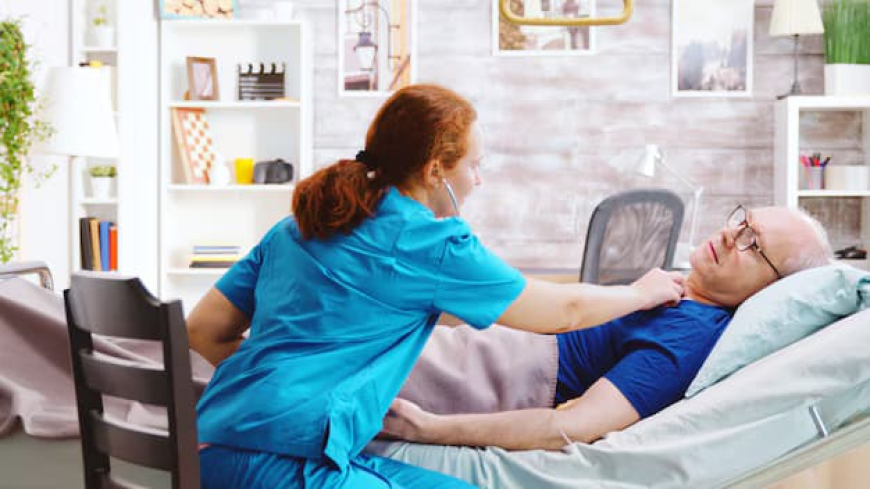The Role of Rehabilitation in After-Stroke Care in Dallas
Experiencing a stroke can be a life-altering event, affecting not only the individual but also their families.

Experiencing a stroke can be a life-altering event, affecting not only the individual but also their families. Stroke can lead to significant physical, cognitive, and emotional challenges, necessitating comprehensive care and support during the recovery process. After stroke care in Dallas plays a crucial role in helping individuals regain their independence and improve their overall quality of life. One of the key components of effective after-stroke care is rehabilitation, which focuses on restoring function and facilitating recovery. This article explores the vital role of rehabilitation in after-stroke care and how it contributes to positive outcomes for patients.
Understanding the Impact of a Stroke
A stroke occurs when blood flow to the brain is disrupted, leading to brain cell damage. This can result in a wide range of symptoms, including weakness or paralysis on one side of the body, difficulty speaking, impaired coordination, and cognitive challenges such as memory loss or difficulty concentrating. The effects of a stroke can vary greatly from person to person, making individualized care essential.
After a stroke, patients may face challenges that impact their ability to perform daily activities, communicate effectively, and engage socially. Rehabilitation is designed to address these challenges by providing targeted therapies that promote recovery and enhance functional independence.
The Importance of Rehabilitation in Recovery
Rehabilitation is a critical element of after-stroke care, as it focuses on restoring lost skills and abilities. The rehabilitation process typically begins as soon as the patient is stable, often while they are still in the hospital. Early intervention is crucial, as research has shown that starting rehabilitation soon after a stroke can lead to better functional outcomes.
The goals of rehabilitation include:
-
Improving Physical Function: Rehabilitation therapies, including physical therapy, occupational therapy, and speech therapy, are tailored to address specific deficits caused by the stroke. These therapies help patients regain strength, coordination, and mobility, enabling them to perform activities of daily living.
-
Enhancing Cognitive Abilities: Cognitive rehabilitation focuses on improving memory, attention, problem-solving, and communication skills. This aspect of rehabilitation is essential for patients who experience cognitive challenges after a stroke.
-
Promoting Emotional Well-being: A stroke can lead to emotional changes, including anxiety and depression. Rehabilitation programs often include psychological support and counseling to help patients cope with these challenges, fostering a positive mindset and improving overall well-being.
Types of Rehabilitation Therapies
After-stroke care in Dallas encompasses various rehabilitation therapies, each designed to address different aspects of recovery. Some of the key therapies include:
-
Physical Therapy: Physical therapists work with patients to improve mobility, strength, and balance. They develop individualized exercise programs that focus on enhancing physical function and reducing the risk of falls.
-
Occupational Therapy: Occupational therapists help patients regain the skills needed for daily activities, such as dressing, grooming, and cooking. They may also provide adaptive equipment or techniques to facilitate independence.
-
Speech and Language Therapy: For individuals experiencing difficulty with communication or swallowing, speech therapists provide targeted interventions to improve speech, language, and swallowing abilities.
-
Neuropsychological Rehabilitation: This type of therapy focuses on addressing cognitive and emotional challenges after a stroke. Neuropsychologists work with patients to develop strategies for improving memory, attention, and problem-solving skills.
The Role of Family in Rehabilitation
Family involvement is a crucial aspect of the rehabilitation process. Supportive family members can provide encouragement, assistance, and motivation throughout the recovery journey. Engaging family members in rehabilitation activities helps reinforce the skills learned during therapy and fosters a collaborative approach to care.
Families can also benefit from education about the effects of stroke and the rehabilitation process. Understanding the challenges their loved ones face enables families to provide better support and promote a positive recovery environment. Open communication between healthcare providers, patients, and families is essential for achieving the best outcomes.
Setting Realistic Goals for Recovery
Establishing realistic goals is an important part of the rehabilitation process. Goals should be specific, measurable, achievable, relevant, and time-bound (SMART). Rehabilitation teams work closely with patients and their families to set individualized goals that reflect the patient's priorities and preferences.
By setting achievable goals, patients can experience a sense of accomplishment as they make progress in their recovery. Celebrating small victories along the way can help maintain motivation and encourage continued effort in rehabilitation.
Continuing Care and Support
After formal rehabilitation programs, ongoing support is essential for maintaining progress and preventing setbacks. Continuous care may involve outpatient therapy, home health services, or community-based programs. Families play a vital role in facilitating this ongoing care, ensuring that their loved ones continue to receive the support they need.
Home care services can also provide valuable assistance in after-stroke care. Professional caregivers can help with daily activities, offer companionship, and reinforce rehabilitation exercises, allowing patients to continue their recovery in a comfortable and familiar environment.
Conclusion: Empowering Recovery through Rehabilitation
In conclusion, rehabilitation plays a vital role in after-stroke care, helping individuals regain their independence and improve their quality of life. Through targeted therapies and support, rehabilitation addresses the physical, cognitive, and emotional challenges that arise after a stroke.
As families in Dallas seek effective solutions for their loved ones, organizations like “At Home Personal Care” exemplify the commitment to providing high-quality rehabilitation and after-stroke care. By choosing comprehensive rehabilitation services, families can empower their loved ones to navigate their recovery journey with confidence, ensuring they receive the compassionate care necessary for optimal healing and well-being.

 ravatadam560
ravatadam560